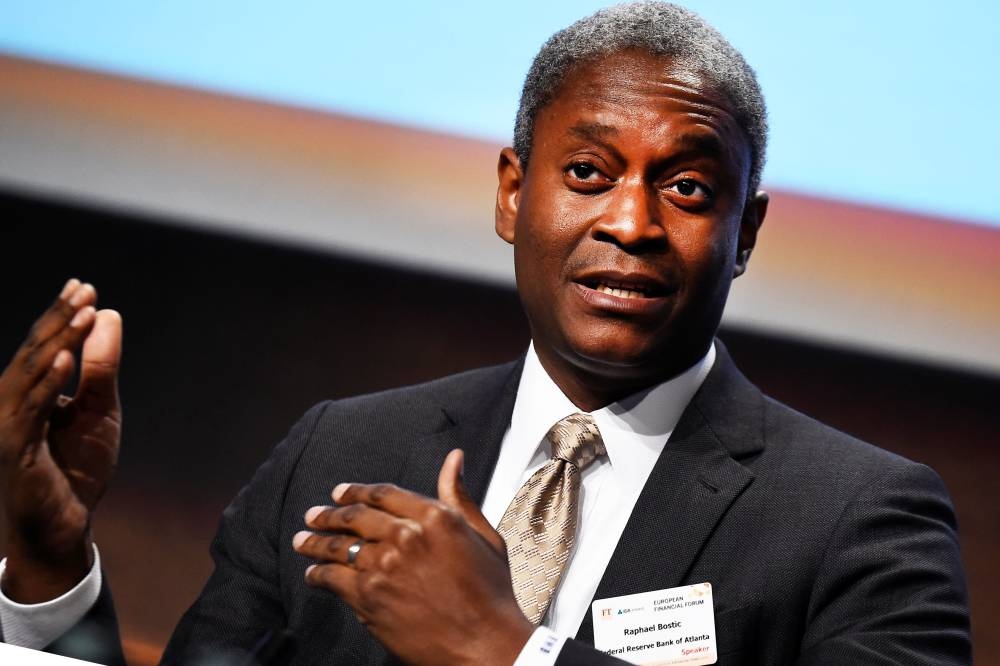While a report on labor statistics in the United States revealed Tuesday that US job openings fell in June to the lowest level since April 2021, a banking official urged the US central bank to be cautious not to overtighten monetary policy with inflation poised to continue receding.
Bloomberg quoted Federal Reserve Bank of Atlanta President Raphael Bostic as saying on Tuesday "I think we are in a phase now where there is some risk of us overtightening. And so we've just got to have that in mind," he said. "If we can be appropriately cautious, I think we have the opportunity to minimize the damage that we see on the employment side."
The Fed at its July 25-26 meeting raised its benchmark interest rate by a quarter percentage point, bringing it to a range of 5.25% to 5.5%, the highest level in 22 years.
Bostic urged the US central bank to be cautious not to overtighten monetary policy with inflation poised to continue receding. "There has been significant progress in the battle," Bostic said in a press briefing. "Inflation is well off of its highs that we saw in the last year. And recent numbers have come in promising in ways that suggest that we might be seeing continued declines."
Inflation fell in June to its slowest pace in more than two years, giving Americans relief from a painful period of rising prices. However, it remained strong enough to prompt the Federal Reserve to consider continuing to raise interest rates.
The Atlanta Fed chief said that he doesn't currently expect a rate hike will be needed at the next policy meeting in September.
Bostic said that he would have likely "grudgingly" supported last week's rate hike if he were a voter, even though he had publicly questioned the need for one beforehand.
"Things to date seem to be evolving in a way that's consistent with the notion of an orderly slowdown, which is quite promising," he said. "In terms of policy, I think all of these facts argue for us being cautious, patient and resolute."
Bostic said that while his baseline view hasn't changed, the Fed will get lots of additional data by September, and he would be willing to adjust his view for that meeting if the data comes in contrary to his expectations.
Policymakers in recent days have said they're waiting on incoming data to guide their decision on whether to raise rates at the Fed's next gathering. The latest surprisingly mild inflation reports, signs of moderating consumer spending and evidence of diminishing wage pressures have suggested there's little urgency to raise rates next month, according to Bloomberg.
The Federal Open Market Committee (FOMC) meeting is a regular session held by the members of the Committee, a branch of the Federal Reserve that decides on the monetary policy of the United States. After deliberating on short-term monetary policy, the FOMC will decide on a target federal funds rate that they believe will achieve their aims.
The US Department of Labor said in a report on Tuesday that job openings, a measure of labor demand, dropped 34,000 to 9.582 million as of the last day of June, the lowest level since April 2021.
Furthermore, job openings for May were revised downward to 9.616 million instead of the previously reported 9.824 million.
Hiring fell to the lowest level since February 2021. But layoffs also eased, to the lowest since the end of last year, suggesting employers are reticent to let go of staff, the report added.

